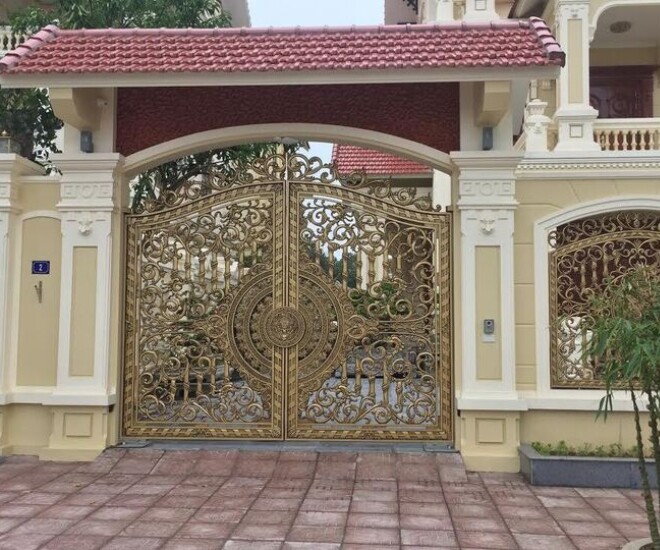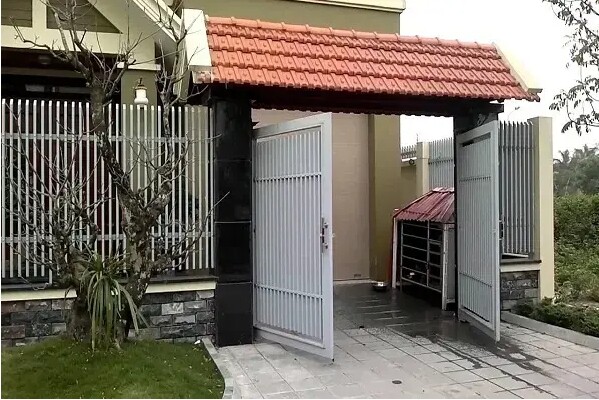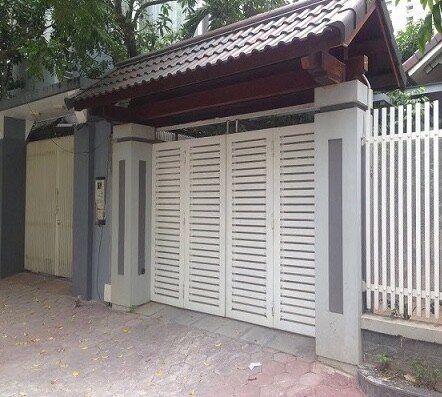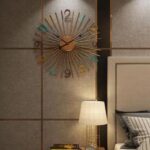The Significance of the Main Gate in Feng Shui

Illustrative Image
The main gate of a house is the first point of contact with the external environment, serving as a boundary between the outside world and the family’s living space. In Feng Shui, the gate is not merely an entrance but a vital channel for attracting energy and prosperity into the home. A well-designed gate, aligned with the correct direction, can draw in positive energy, bringing luck and peace to the household.
Should the Gate Open Outward or Inward?
According to traditional Feng Shui principles, an outward-opening gate is considered the optimal choice. This design allows wealth and positive energy to flow seamlessly into the home, fostering prosperity and happiness. Conversely, an inward-opening gate can create a sense of confinement, obstructing the flow of positive energy and potentially leading to discord within the family.
However, in modern urban settings, space constraints often dictate the gate’s orientation. In such cases, inward-opening gates are practical to avoid encroaching on public areas and disrupting traffic. To mitigate any negative Feng Shui effects, homeowners can adopt alternative solutions, such as installing sliding gates or placing a Bagua mirror at the entrance to enhance spatial harmony.

Illustrative Image
Key Feng Shui Considerations When Designing a Main Gate
Beyond the gate’s orientation, several Feng Shui factors should be considered to ensure the home attracts wealth and tranquility.
1. Gate Direction
The gate’s direction is crucial and varies based on the homeowner’s elemental destiny (Five Elements):
– Fire Element: Avoid north-facing gates, as Water (North) conflicts with Fire.
– Metal Element: South-facing gates should be avoided, as Fire (South) clashes with Metal.
– Water Element: Steer clear of southwest and northeast directions, as Earth (these directions) weakens Water.
– Wood Element: Avoid west and northwest directions, as Metal (these directions) opposes Wood.
2. Gate Size and Design
The gate’s dimensions are equally important. Oversized or undersized gates can disrupt the home’s aesthetic and Feng Shui balance. According to the Luoban ruler, ideal gate dimensions typically feature odd-numbered lengths and even-numbered widths. Narrow gates may restrict positive energy flow, while excessively wide gates can allow negative energy to enter.
Additionally, the gate’s design should be straightforward and symmetrical, avoiding concave or arched shapes resembling tombstones, which are believed to bring misfortune.

Illustrative Image
Feng Shui Taboos in Main Gate Construction
When constructing a gate, avoid certain taboos to prevent negative impacts on wealth and health. The gate should not face sharp objects, withered trees, water features, or artificial hills, as these elements generate negative energy. Additionally, the gate should not align directly with the kitchen, bedroom, or bathroom, as this can adversely affect family well-being.
Another critical rule is to avoid aligning the gate and front door in a straight line, as this creates a direct path for negative energy. If unavoidable, remedies such as a Bagua mirror or curtains can be used to mitigate this effect.
Forged in Fire: Overcoming Adversity at 3, Embracing Prosperity After 100 Days
In the coming 100 days, three zodiac signs are destined to experience a profound transformation, as fortune smiles upon them. Their lives will take a remarkable turn, turning challenges into opportunities and paving the way for immense wealth and prestige. These fortunate individuals will rise above adversity, embracing prosperity and achieving significant milestones in both financial abundance and social recognition.



































